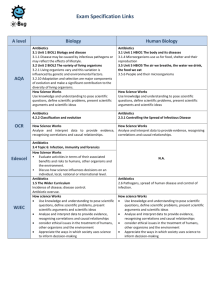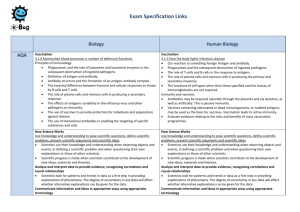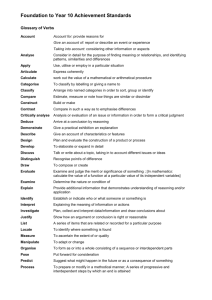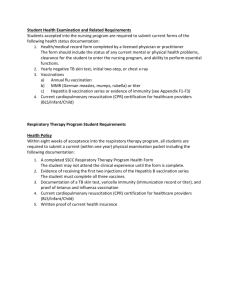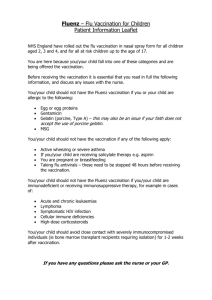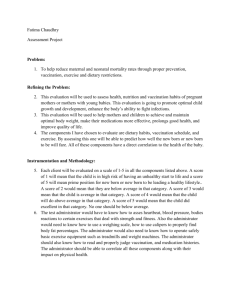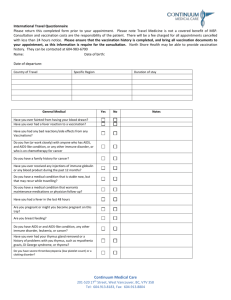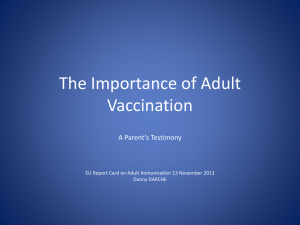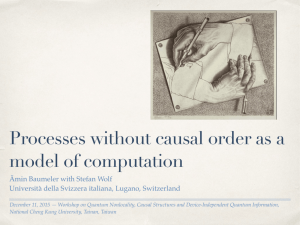condensed version - e-Bug
advertisement
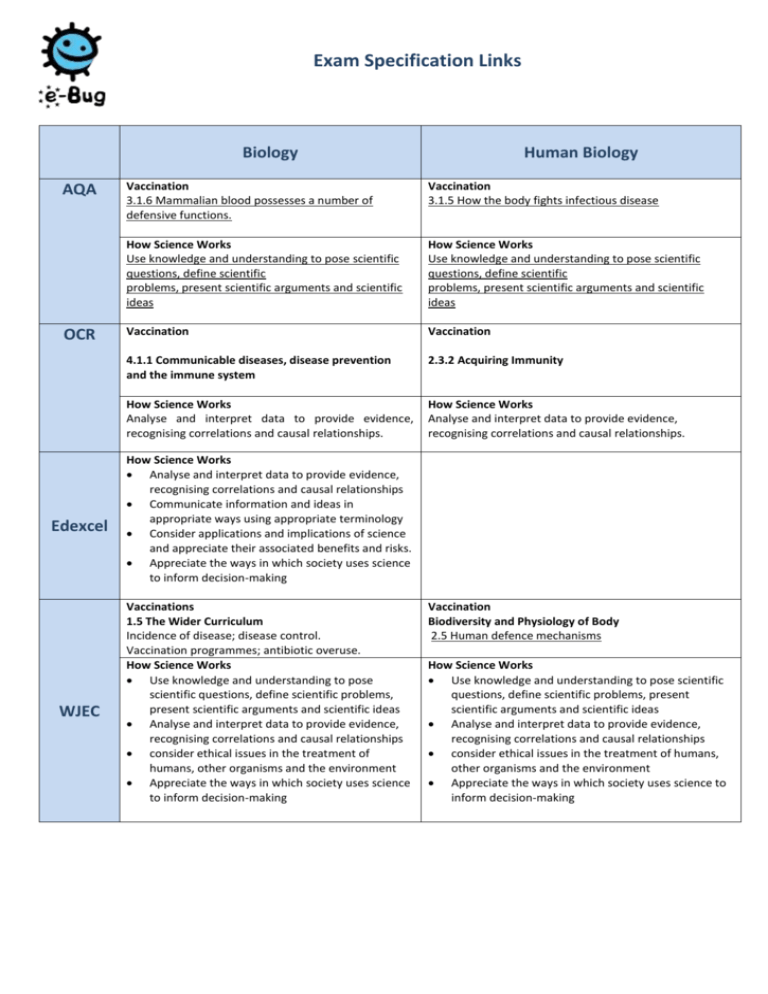
Exam Specification Links Biology AQA OCR Edexcel WJEC Human Biology Vaccination 3.1.6 Mammalian blood possesses a number of defensive functions. Vaccination 3.1.5 How the body fights infectious disease How Science Works Use knowledge and understanding to pose scientific questions, define scientific problems, present scientific arguments and scientific ideas How Science Works Use knowledge and understanding to pose scientific questions, define scientific problems, present scientific arguments and scientific ideas Vaccination Vaccination 4.1.1 Communicable diseases, disease prevention and the immune system 2.3.2 Acquiring Immunity How Science Works Analyse and interpret data to provide evidence, recognising correlations and causal relationships. How Science Works Analyse and interpret data to provide evidence, recognising correlations and causal relationships. How Science Works Analyse and interpret data to provide evidence, recognising correlations and causal relationships Communicate information and ideas in appropriate ways using appropriate terminology Consider applications and implications of science and appreciate their associated benefits and risks. Appreciate the ways in which society uses science to inform decision-making Vaccinations 1.5 The Wider Curriculum Incidence of disease; disease control. Vaccination programmes; antibiotic overuse. How Science Works Use knowledge and understanding to pose scientific questions, define scientific problems, present scientific arguments and scientific ideas Analyse and interpret data to provide evidence, recognising correlations and causal relationships consider ethical issues in the treatment of humans, other organisms and the environment Appreciate the ways in which society uses science to inform decision-making Vaccination Biodiversity and Physiology of Body 2.5 Human defence mechanisms How Science Works Use knowledge and understanding to pose scientific questions, define scientific problems, present scientific arguments and scientific ideas Analyse and interpret data to provide evidence, recognising correlations and causal relationships consider ethical issues in the treatment of humans, other organisms and the environment Appreciate the ways in which society uses science to inform decision-making Other relevant Curriculum links: The e-Bug 15-18 resources also cover a range of other A-levels and applied courses: AQA Science in Society - 3.1.2 Infectious diseases now AQA Health and Social Care- 3.10.4 Strategies to Prevent Disease: Immunisation BTEC, for example: Applied Biology –Edexcel BTEC Level 4 HNC Diploma in Applied Biology -The Immune Response System -Infectious Diseases -Medical Microbiology Edexcel BTEC Level 3 90-credit Diploma in Health and Social Care -Defence against Disease -Public Health -Infection Prevention and Control -Introduction to Microbiology for Health and Social Care The resources may also be applicable to other examining body specifications, health educators and in a pastoral care setting i.e. Travel Vaccine Information Skills gained: Research Communication –debate cards, peer education lessons Analytical – Exam style questions on student worksheets Written communication Team Work
